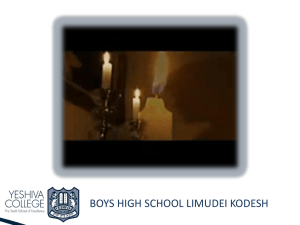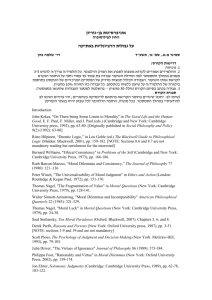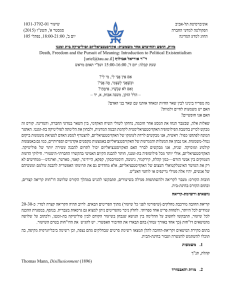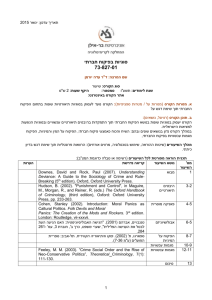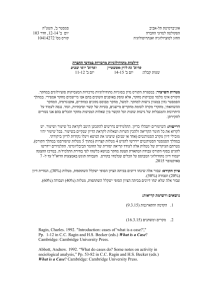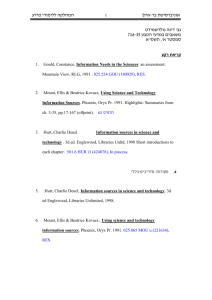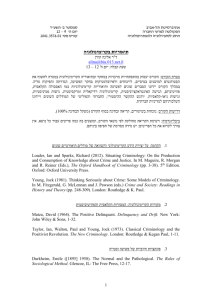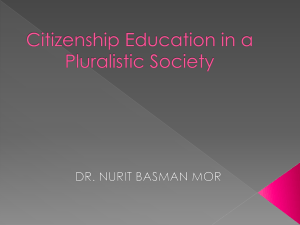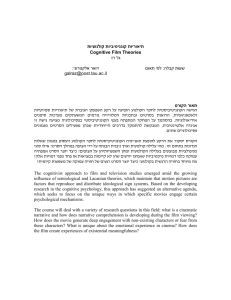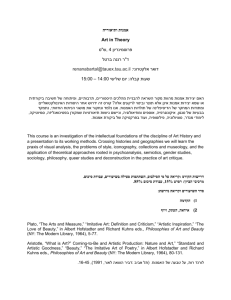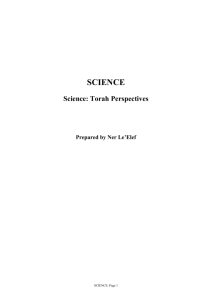1. בעיית הבחינוּת
advertisement
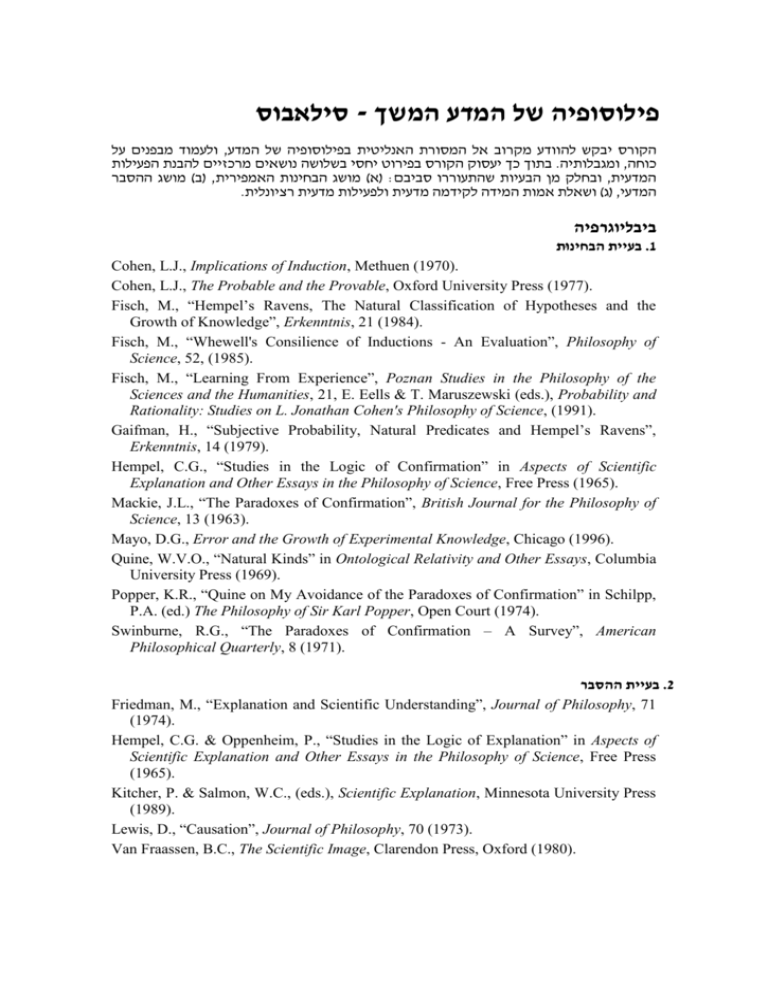
סילאבוס- פילוסופיה של המדע המשך ולעמוד מבפנים על,הקורס יבקש להוודע מקרוב אל המסורת האנליטית בפילוסופיה של המדע בתוך כך יעסוק הקורס בפירוט יחסי בשלושה נושאים מרכזיים להבנת הפעילות. ומגבלותיה,כוחה (ב) מושג ההסבר, (א) מושג הבחינות האמפירית: ובחלק מן הבעיות שהתעוררו סביבם,המדעית . (ג) ושאלת אמות המידה לקידמה מדעית ולפעילות מדעית רציונלית,המדעי ביבליוגרפיה בעיית הבחינּות.1 Cohen, L.J., Implications of Induction, Methuen (1970). Cohen, L.J., The Probable and the Provable, Oxford University Press (1977). Fisch, M., “Hempel’s Ravens, The Natural Classification of Hypotheses and the Growth of Knowledge”, Erkenntnis, 21 (1984). Fisch, M., “Whewell's Consilience of Inductions - An Evaluation”, Philosophy of Science, 52, (1985). Fisch, M., “Learning From Experience”, Poznan Studies in the Philosophy of the Sciences and the Humanities, 21, E. Eells & T. Maruszewski (eds.), Probability and Rationality: Studies on L. Jonathan Cohen's Philosophy of Science, (1991). Gaifman, H., “Subjective Probability, Natural Predicates and Hempel’s Ravens”, Erkenntnis, 14 (1979). Hempel, C.G., “Studies in the Logic of Confirmation” in Aspects of Scientific Explanation and Other Essays in the Philosophy of Science, Free Press (1965). Mackie, J.L., “The Paradoxes of Confirmation”, British Journal for the Philosophy of Science, 13 (1963). Mayo, D.G., Error and the Growth of Experimental Knowledge, Chicago (1996). Quine, W.V.O., “Natural Kinds” in Ontological Relativity and Other Essays, Columbia University Press (1969). Popper, K.R., “Quine on My Avoidance of the Paradoxes of Confirmation” in Schilpp, P.A. (ed.) The Philosophy of Sir Karl Popper, Open Court (1974). Swinburne, R.G., “The Paradoxes of Confirmation – A Survey”, American Philosophical Quarterly, 8 (1971). בעיית ההסבר.2 Friedman, M., “Explanation and Scientific Understanding”, Journal of Philosophy, 71 (1974). Hempel, C.G. & Oppenheim, P., “Studies in the Logic of Explanation” in Aspects of Scientific Explanation and Other Essays in the Philosophy of Science, Free Press (1965). Kitcher, P. & Salmon, W.C., (eds.), Scientific Explanation, Minnesota University Press (1989). Lewis, D., “Causation”, Journal of Philosophy, 70 (1973). Van Fraassen, B.C., The Scientific Image, Clarendon Press, Oxford (1980). Mackie, J.L., “Causes and Conditions”, Sosa, E. (ed.) Causation and Conditionals (Oxford Readings in Philosophy), Oxford University Press (1975). בעיית הרציונליות והתקדמות המדע.3 Agassi, J. & Jarvie, I.C., (eds.), Rationality: The Critical View, Martinus Nijhoff, Dordecht, (1987). Audi, R., The Architecture of Reason: The Structure and Substance of Rationality, Oxford University Press (2001). Brown, H.I., Rationality, Routledge, (1988). Collingwood, R.G., An Autobiography, reprinted by Pelican, (1944). Curtis, R., “Are Methodologies Theories of Scientific Rationality?”, British Journal for the Philosophy of Science, 37 (1986). Fisch, M., “Towards a Rational Theory of Progress”, Synthese, 99 (1994). Fisch, M., “Trouble-Shooting Creativity”, History and Philosophy of the Life Sciences, 16 (1994). Fisch, M., Rational Rabbis: Science and Talmudic Culture, Indiana University Press (1997). Friedman, M., Dynamics of Reason: The 1999 Kant Lectures at Stanford University, CSLI Publications, Stanford (2000). Garber, D., “Learning from the Past: Reflections on the Role of History in the Philosophy of Science”, Synthese, 67 (1986). Hattiangadi, J.N., “The Structure of Problems” (Parts I & II), Philosophy of the Social Sciences, 8, and 9 (1978/9). Lakatos, I., “History of Science and its Rational Reconstructions” in The Methodology of Scientific Research Programmes: Philosophical Papers, Cambridge University Press, (1978). Nozick, P., The Nature of Rationality, Princeton University Press (1993). Popper, K.R., Objective Knowledge - An Evolutionary Approach, Oxford (1975). Putnam, H., Reason, Truth and History, Cambridge University Press, (1981). Searle, J., Rationality in Action, MIT Press, Cambridge, Ma., 2001
